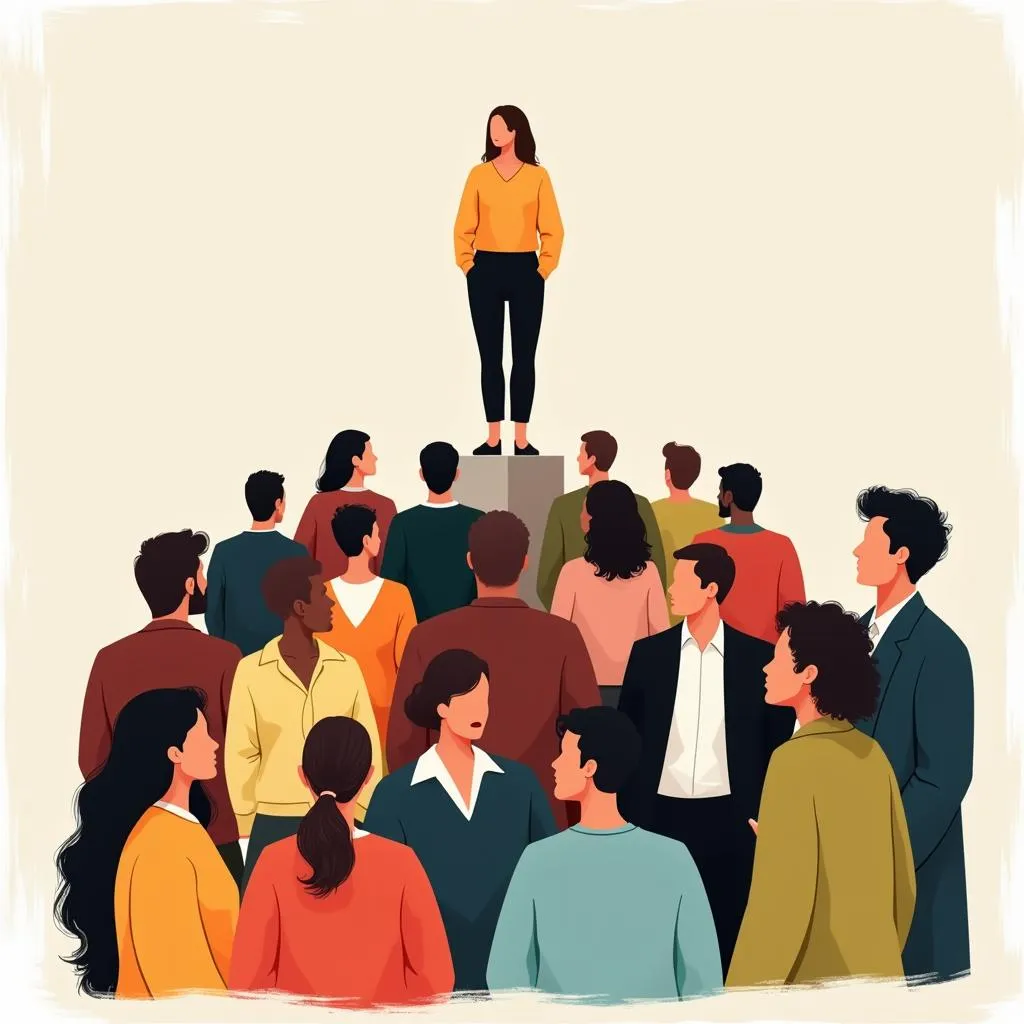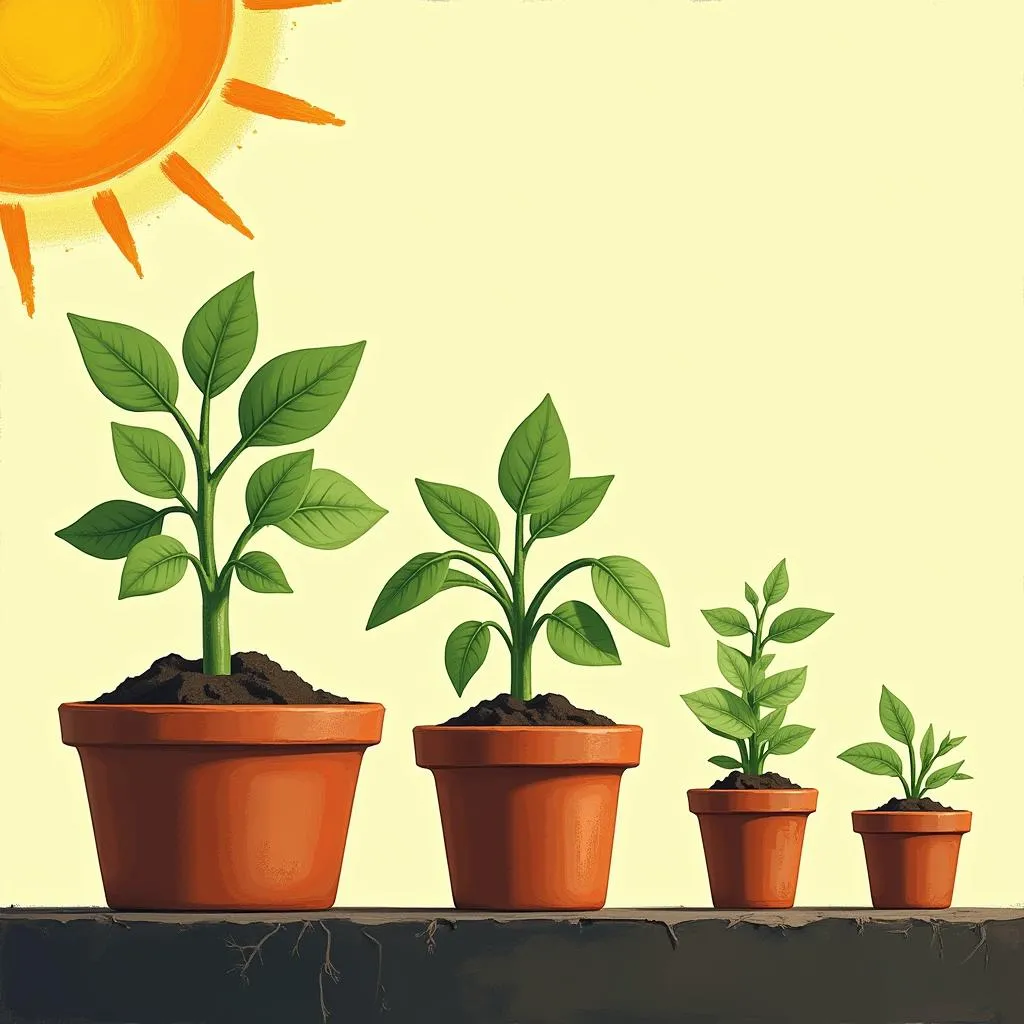Power dynamics are ever-present, woven into the very fabric of our social interactions and institutions. They influence who gets a seat at the table, whose voices are heard, and ultimately, how resources are distributed. Understanding these dynamics is not just an academic exercise; it’s crucial for building a more just and equitable world.
What are Power Dynamics?
At its core, power refers to the ability to influence others, make decisions, and control resources. This influence can stem from various sources, including wealth, social status, knowledge, or even physical strength. Power dynamics, then, describe how this power plays out in relationships and systems.
 Diverse group of people illustrating power imbalance
Diverse group of people illustrating power imbalance
Types of Power Dynamics
Power dynamics are rarely black and white. They can manifest in subtle ways, often operating beneath the surface of our awareness. Let’s explore some common types:
- Formal vs. Informal Power: Formal power is derived from official positions within hierarchies, like a CEO or a government official. Informal power, on the other hand, arises from personal attributes and social networks. A charismatic community leader, for instance, might wield significant informal power despite lacking a formal title.
- Reward Power: This type of power stems from the ability to provide rewards, whether tangible, like promotions, or intangible, like praise and recognition.
- Coercive Power: This form of power relies on the threat of punishment or negative consequences to influence behavior.
- Expert Power: Individuals with specialized knowledge or skills possess expert power. Think of doctors, scientists, or skilled technicians.
The Impact of Power Dynamics
Power dynamics shape our lives in profound ways. They influence our access to opportunities, our sense of agency, and even our mental and physical well-being.
For instance, in societies with high power distance, like many hierarchical cultures, individuals in positions of authority are often unquestioned, and challenging those in power is discouraged. Conversely, cultures with low power distance tend to value equality and collaboration, encouraging more open communication and shared decision-making.
 Unequal access to resources symbolized by different sized plants
Unequal access to resources symbolized by different sized plants
Addressing Power Imbalances
Recognizing and addressing power imbalances is essential for fostering a more just and peaceful world. Here are some key strategies:
- Promote Education and Awareness: Raising awareness about power dynamics and their impact is the first step. By understanding how power operates, we can start to identify and challenge inequities.
- Empower Marginalized Groups: Providing marginalized groups with access to education, resources, and opportunities is crucial for leveling the playing field.
- Encourage Dialogue and Collaboration: Creating spaces for open and respectful dialogue across difference is key to bridging divides and finding common ground.
The Role of Civil Society
Civil society organizations play a vital role in challenging power dynamics and advocating for social change. [Essentials of social statistics for a diverse society](https://societyforpeace.com/essentials-of-social statistics-for-a-diverse-society/) provides valuable insights into understanding the complexities of societal structures and inequalities. These organizations often work to:
- Amplify Marginalized Voices: By providing platforms and resources, civil society organizations help elevate the voices and experiences of those often unheard.
- Hold Power to Account: Through advocacy, research, and public campaigns, civil society groups hold powerful actors accountable for their actions and advocate for greater transparency and fairness.
- Promote Peacebuilding and Reconciliation: By facilitating dialogue, mediating conflicts, and promoting understanding, civil society organizations contribute to building more peaceful and inclusive societies.
Conclusion
Power dynamics are an inherent part of the human experience. However, by acknowledging their existence, understanding their complexities, and working together to address power imbalances, we can create a more just and equitable world for all. Let’s strive to build societies where power is shared, voices are heard, and every individual has the opportunity to thrive.
FAQ
1. What is an example of a power dynamic in everyday life?
Imagine a workplace where the manager consistently favors the opinions of male employees over female employees, even when the women have more experience or expertise. This is an example of a power dynamic based on gender, where the manager’s position gives him the power to unfairly privilege certain voices.
2. How can I become more aware of power dynamics in my own life?
Start by paying attention to who speaks most often in meetings, whose opinions are valued, and who has the final say in decision-making. Reflect on your own privileges and how they might influence your interactions with others.
3. What are some ways to challenge harmful power dynamics?
You can challenge harmful power dynamics by speaking up against injustice, amplifying marginalized voices, and supporting organizations working to promote equality.
4. Can power dynamics ever be positive?
Yes, when used responsibly, power can be used to create positive change. For example, a teacher who uses their power to create an inclusive and supportive learning environment for all students.
5. What resources are available to help me learn more about power dynamics?
Many books, articles, and online resources explore this topic in depth. Civil society definition ap gov can provide further insights into the role of civil society in addressing power imbalances.
Need further assistance? Contact us at Phone Number: 02043854663, Email: [email protected]. You can also visit us at our office located at: Khu 34, Bắc Giang, 260000, Vietnam. Our dedicated customer service team is available 24/7 to address your inquiries. We also recommend exploring these related articles on our website: Society of snow imdb, Mao hamasaki high society.